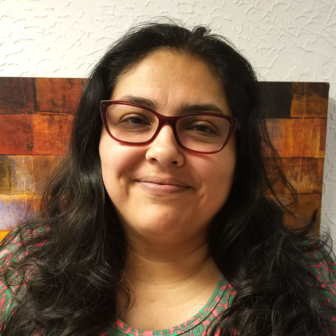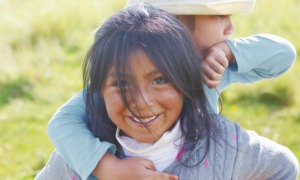
wavebreakmedia/Shutterstock
What comes to mind when you hear the term foster care? More than likely, it is not the placement of children with kin caregivers after suspected abuse or neglect. According to a recent article, Bernalillo County, N.M., has the highest percentage of children placed in foster care and then returned to their parents just as quickly as they were removed.
However, for those children who are placed for longer periods of time, and with relatives, local organizations have been working to increase the type and amount of support kin caregivers get to help them sustain the care they are giving to these children. As someone who is currently in this position, I can say that I only recently started thinking of myself or my husband as foster parents — we are simply doing what families do, right? WRONG!
Becoming a kinship guardian is much more complicated than simply fulfilling your familial obligation. It is parenting, fighting with the parent of the children (because you’re family), doctor visits, court hearings, therapy appointments and all the other things that go into raising a child.
According to the Children, Youth, and Families Department (CYFD) website, foster parents are afforded support in various ways, such as: 100% medical coverage for the child, a monthly stipend to cover expenses, payment of legal fees and training to prepare to become a foster parent. However, there is no information for kin caregivers on the website despite the push to increase kinship placements.

Leandrea Romero-Lucero
Additionally, it has been shown that although there is a large number of children in kinship placements in New Mexico, there is no money or services set aside for them or their caregivers. New Mexico began a new kinship navigator program in 2018: Its aim is to help grandparents who are raising their grandchildren, as well as “other relatives” raising children, but it is based on the caregiver’s income level.
I took the eligibility survey. Based on my current income, the children I am a guardian of do not qualify for any of the programs available. Despite me obtaining my Ph.D. in 2014 (one year prior to having the first child placed in my custody), and my husband having a college degree, we still receive monetary support from my parents and free babysitting from my in-laws due to the lack of resources afforded to us as kin caregivers.
FAMILIES NEED SUPPORT WHEN THEY TAKE IN CHILD
We are into our fifth year as kin guardians, and have spent a lot of our time in court battles (with a lawyer we had to pay for), supervised visits, heartache and the expectation that we should “be able to work it out on our own” because the biological parent is my sister. Despite doing everything that we believe to be in the best interest of the children, we have been berated — by the parents, judges, guardian ad litem — accused of stealing the children, all while having to find our own resources, pay thousands upon thousands of dollars in legal fees, as well as figuring out how to manage our own mental health to ensure we can keep caring for the children we promised to take care of.
For being two intelligent, highly educated individuals, my husband and I made the most uninformed decision when we, without question, took in my sister’s three children. It was never a question whether we would take them into our home instead of letting them go into state custody and more than likely be separated.
But what the CYFD investigator did not prepare us for was the long, emotional journey that was in front of us. During this journey, we have been told on several occasions, “if the children would have been placed in traditional foster care, the parent’s rights would have already been terminated.”
Foster care in New Mexico, specifically kinship placement, appears to be making a shift upward. For it to continue going in that direction, it is crucial that lawmakers and advocates not only continue to advocate for the children who have been displaced from their homes, but also for the kin caregivers who make immeasurable sacrifices.
The hyperfocus on the wellbeing of the children is understandable and expected; however, the wellbeing of the caregivers should not be overshadowed. With the alarmingly high number of children in relative care in New Mexico, it is of utmost importance to take care of the caregivers charged with their care — regardless of whether it is an informal or formal placement.
Leandrea Romero-Lucero is an assistant professor at Lock Haven University and is a current kin caregiver. Additionally, she works with families who have Children, Youth, and Families Department and other legal involvement at Southwest Family Guidance Center.





























